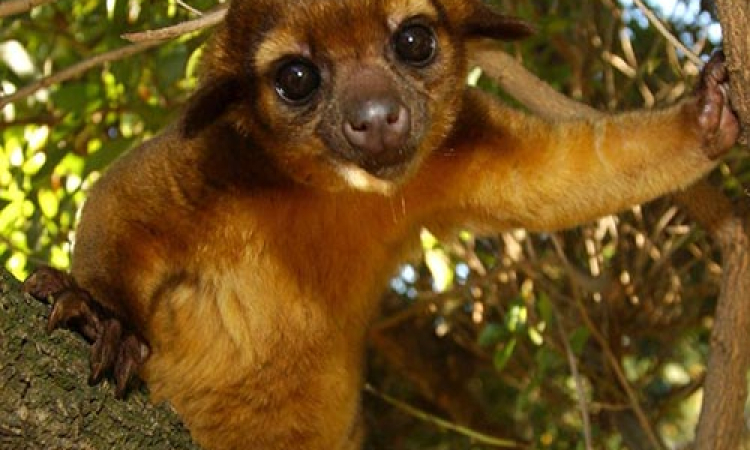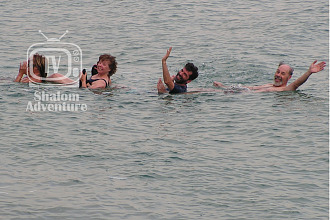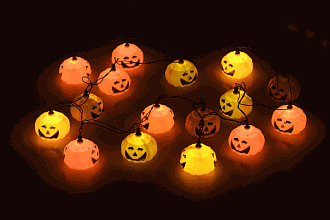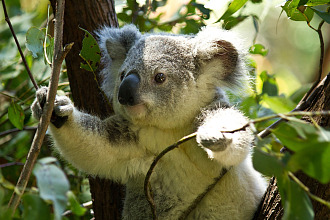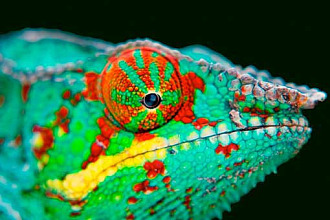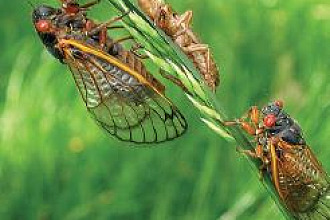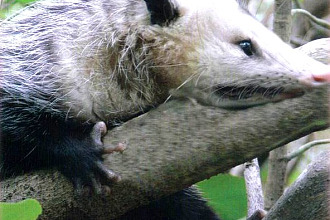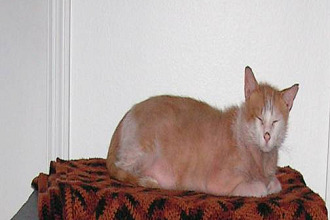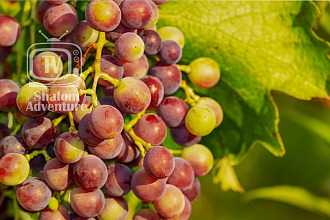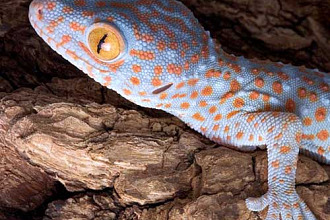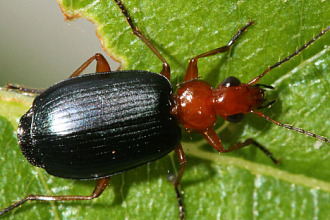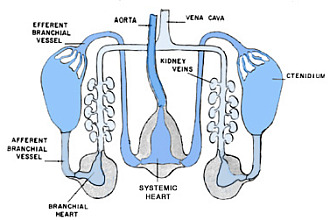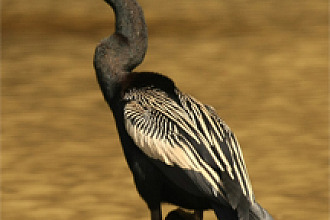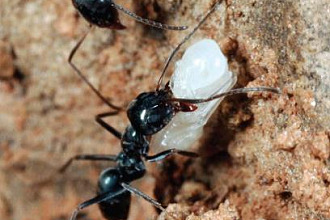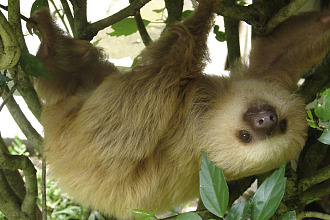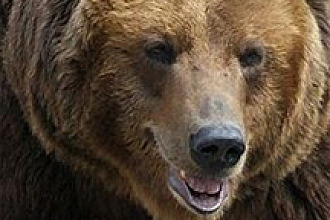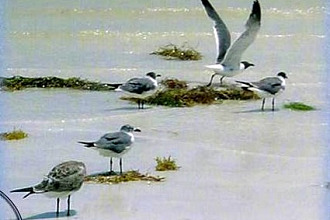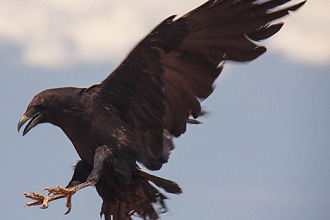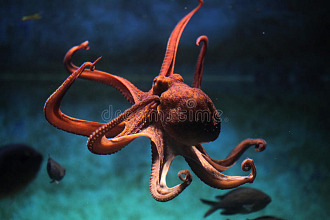I had never heard of a kinkajou—the little creature without a bad odor—until a neighbor got one. It won our hearts:
If you spent the nighttime playing among the topmost branches in a canopy of trees in a tropical rainforest somewhere between S. Mexico and Brazil, you just might discover a wild nocturnal animal with soft golden-brown fur (grey-colored when first born) who is called a kinkajou. That's a name given him by locals—freely translated it means "honey bear." The kinkajou is NOT a bear, and though 90% of its dietary delight is fruit—they do love to use their not by accident five-inch-long tongues to slurp up honey they've raided from a beehive or to get nectar deep in flowers. Researchers tell us these soft, snuggly creatures that weigh between 6 to 10 pounds, are one of the main players in the balance of the ecosystem in their area. How so? Since the kinkajou will stick its whole face down into flowers as their tongue goes seeking the delicious nectar deep inside, that face, covered with pollen from one flower is soon on its way to tucking itself down inside another flower. Voila! The pollen smears off on the next flower and you have the only carnivore known to science that is also a pollinator-in this case of gorgeous tropical flowering trees and plants. That's NOT by accident!
They are adorable creatures with round faces, big eyes and round little bear-like ears. But don't mess with them when they've just discovered delicious morsels. They have sharp teeth and can be territorial when they feed! And don't worry how kinkajous keep their balance running back and forth in the treetops, burying their faces in floral beauty or hanging upside down gorging themselves on soft fruit. Their Creator built them to live there! First, the soles of their feet, not-by-accident, are something like bare hands, with slightly-webbed toes ending in sharp claws. They can grasp the smallest branches to hang or swing on. They are also one of only two carnivores that have a prehensile tail, designed to serve as a not-by-accident fifth arm. They can even put a small loop at the very tip of their 22 to 30 inch long tail (the same length as their furry body) and suspend themselves (head, body and tail) just from that small fur "hook". Then, when they're through slurping up the nectar or fruit they've been hanging upside down enjoying, they not by accident and very carefully climb back up their own tail to get back to the top branches once again! Not by accident that tail also provides comfort like a snuggle toy when the kinkajou rests, or it will be used to cover itself when chilly!
And did I tell you the kinkajou has a not-by-accident hinge mechanism on the ankles of its hind feet so it can make an instant 180° reversal of direction when needed? That means they can turn and run as fast forwards as backwards, or headfirst down a tree when needed! Every not-by-accident provision their Designer made for these cuddly wild creatures is amazing. As they go through life contributing significantly to the pollination of flowers, their sloppiness while eating is also of value! When they throw or drop food while having a meal, they are also distributing seeds for continued growth over a wide area, and nourishing the soil with fruit waste, thus keeping the soil enriched under the tropical trees. Our neighbors have kept their kinkajou's need to jump and leap through the tops of tropical trees in mind by giving her freedom to roam freely in their home! It's obvious their kinkajou enjoys the "neighborhood" they've lovingly planned for their dear little pet-that has no anal scent glands or foul-smelling feces!. So having been trained with love, she's welcome everywhere! It's almost like how Yeshua can't wait to have us enjoy the sights, sounds and freedom He's planned for us on the New Earth—plus we'll learn more of His love throughout eternity since He's made a place for us all at His house.
"NOT BY ACCIDENT" (c) Juanita Kretschmar is used by permission and was first published in newsletters about A Key Encounter, a Key West, FL, Creation-based, educational tourist attraction. Go to www.akeyencounter.org for additional information, To receive the free newsletter write: AKE, PO Box 177, Big Pine Key, FL 33043
Picture originally found here

